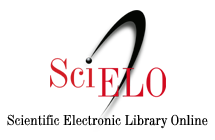Systemic and pulmonary toxicity from immunotherapy: A narrative review and a clinical case report
##plugins.themes.bootstrap3.article.main##
Abstract
In recent times, immunotherapy has emerged as a therapeutic option for various neoplasms, significantly improving survival rates in many cases, albeit with associated adverse effects. There are three types of immunotherapy commonly used in cancer treatment: Chimeric Antigen Receptor T-cell Therapy (CAR-T), notable for adverse reactions such as Cytokine Release Syndrome (CRS) and Immune Effector Cell-Associated Neurotoxicity Syndrome (ICANS); Monoclonal Antibodies (mAbs), with the most common adverse effects being hypersensitivity reactions; and Immune Checkpoint Inhibitors (ICI), with well-documented pulmonary toxicity. Adequate management of these adverse reactions requires a high index of suspicion, accurate differential diagnosis, and timely treatment, primarily based on corticosteroids and guided by severity criteria. We present a case of a patient with granulomatous sarcoid-like reaction following the use of Nivolumab.
##plugins.themes.bootstrap3.article.details##
Nivolumab, Immunotherapy, neoplasms, immune checkpoint inhibitors, pulmonary toxicity

This work is licensed under a Creative Commons Attribution-NonCommercial 4.0 International License.







